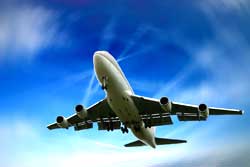As I wrote, some people are not in a position to slow their travel. Sales people need to see customers, and indeed there is a different social dynamic that occurs in person versus remote. However.
If one visits a site like flyertalk.com, where one sees the sheer mountain of complaints against the airlines, there must clearly be a better way for many people. There was a person at my company, for instance, who would commute to his customer in New York from the middle of England – on a weekly basis. Apart from what that costs in terms of dollars to our company and greenhouse gas emissions, it costs the individual too. Why didn’t the management hire someone in the New York area to do the job? Why didn’t they insist that he use TelePresence?
Well, watch this space: video is really coming into its own. Cisco has led the way with TelePresence, and is doing its level best to bring people closer together through introduction of new products and services like ūmi. If video can be made cheap enough, it hopefully means an end to at least some routine business travel. Better placement of resources would mean an end to much more.
But beyond that, all of these people who complain about business travel on that web site look at it as if there is nothing they can do about it. Really- to read someone who travels over 100,000 miles a year and took the time to complain leads me to ask the question I asked myself when I found myself miserably traveling: why travel if it is so miserable? How about not traveling? Or at least not flying? Or at least reducing the amount you fly? You’ll make yourself happier, spend less money, and reduce carbon emissions.
Here’s one reason not to stop flying: sending a message to the airlines. They don’t care. Not only don’t they care, but they’ve learned how to make money no matter what passenger demand they have, through the ability to easily adjust their fleet size, furlough employees, and cancel flights. Load factor is the only thing they care about. You can’t affect it.
By the way, people might think I find the airline industry uninteresting. I don’t. I think it’s fascinating, how planes are designed, how they’ve learned to make money in the worst of times, and how they’ve consolidated themselves into an oligopoly. But I’ll watch from a distance as best I can, thank you very much.

